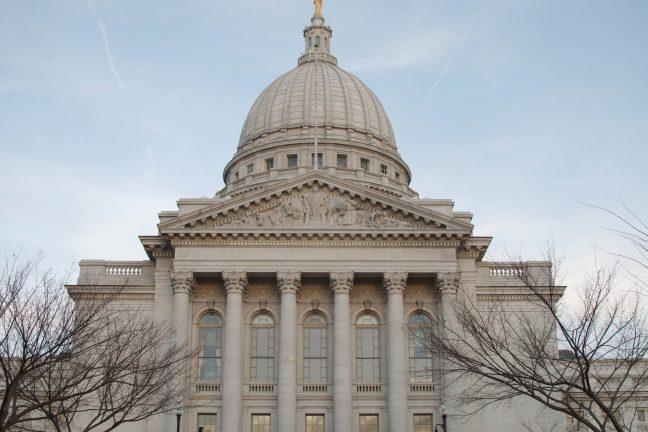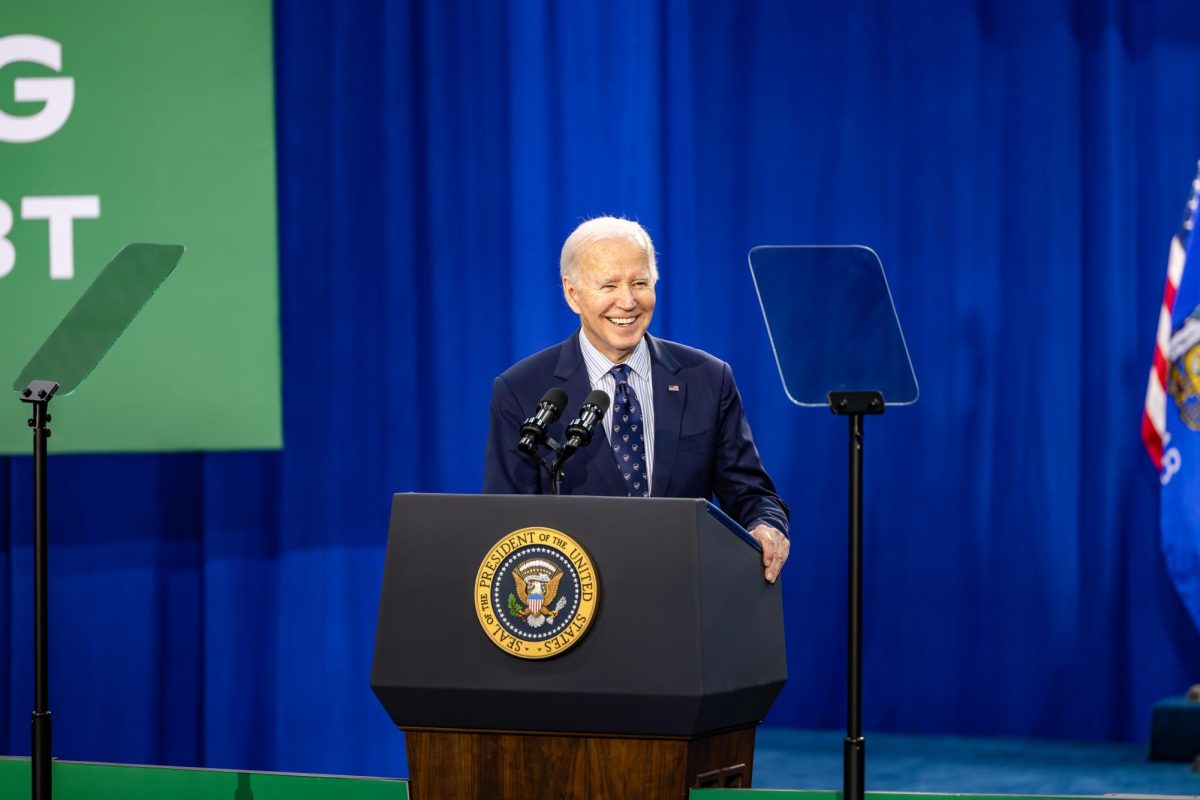Gov. Tony Evers announced Feb. 5 his biennial budget will include a provision to close the “Dark Store” loophole that allows businesses to base their tax assessments on their value as a vacant store rather than a store in operation, resulting in lower property taxes.
This method of assessment has proved controversial, as organizations like the League of Wisconsin Municipalities see the method as a gap in the tax law that allows big corporations to pay less in taxes, forcing Wisconsin residents to pay more.
Cory Fish, Director of Tax, Transportation and Legal Affairs for Wisconsin Manufacturers and Commerce, opposes this view and said assessing stores based solely on the value of their physical structure is more objective.
“With property tax we assess the value of property, not what’s going on inside,” Fish said. “If I’m a new store and there is a well kept-up vacant store across the street from me so it has the same economic location, there’s no reason why you shouldn’t be able to compare yourself to it.”
Mayor Paul Soglin, a supporter of Gov. Evers’ plan to close the loophole, said the traditional way of assessing property value for businesses is by the income method, where businesses are assessed based solely on their income. The Dark Store method, however, does not factor income into its assessment, he said.
Democrats urge Republicans to work collaboratively in light of new state budget
Jerry Deschane, Executive Director of the League Wisconsin Municipalities, said the Dark Store method is simply a way for large corporations to pay less than their fair share of property tax.
“Tax practitioners are always looking for an advantage and they basically explore and try all sorts of new theories until they find one that sticks,” Deschane said.
Fish said local governments are pushing to close this loophole because they want to collect more taxes.
Under Wisconsin law, everyone must be taxed the same way, so if businesses are not able to assess their value as if it were vacant, homeowner should not be able to, either, Fish said. Doing so would disproportionately hurt small businesses, he said.
“If the law is actually changed, they will be required to apply those same practices to everyone and when you apply those same taxation practices to everyone it’s going to result in those business taxpayers who are less able to afford legal representation,” Fish said. “Those are the people that are going to be hurt.”
Closing the loophole would actually save taxpayers money, Soglin said. When businesses are able to pay less property taxes, homeowners are forced to pay more to make up the difference.
In 2018, 71 percent of property tax was residential while only 20 percent was commercial, according to a report from the Wisconsin Department of Revenue.
Potential tax increase needed to cover costs of next state budget, analysis finds
In big cities like Madison, Deschane said the effects of these higher taxes are not always felt because there is so much property the impact gets “diluted.” But in smaller towns, these higher taxes are more impactful.
“The burden gets shifted primarily to residential because that’s who pays most of the bill and it’s simply unfair,” Deschane said.
A similar issue rose in 2008, when the Wisconsin Supreme Court voted in favor of Walgreens, who argued that their property in Madison should be based on market rents while the city of Madison used the income approach and assessed based on Walgreens’ actual lease payments.
The legislation the league has been developing with Evers would address both of these loopholes and allow businesses to pay less property tax, Deschane said.
“The Walgreens supreme court decision sort of started the ball rolling downhill in Wisconsin,” Deschane said. “Dark Store grew out of Walgreens.”
Eliminating these loopholes would allow property tax to be assessed more subjectively, Fish said. Doing so would let local municipalities decide who to tax more, as many municipalities are currently taxing out of state businesses more because they are less “sympathetic.”
If the loopholes are closed, Fish said certain politicians could choose to tax some businesses more for arbitrary reasons, like if the business supported their opponent in the last election.
Election 2018: Amid expectations of a ‘Blue Wave,’ Wisconsin selects a Democratic ticket
“What local governments are trying to do is move down to that approach where they can subjectively value that business more highly than the comparison approach would have allowed and so they can collect more taxes,” Fish said.
While Soglin said the loophole has not attracted more business to Wisconsin because businesses “probably realize that eventually the Legislature is going to fix this,” Fish argued closing this loophole will actually deter businesses from moving to Wisconsin.
Deschane, on the other hand, said he is worried that if the loophole is not closed now, it will become “the norm.”
“Now would be the time to stop it,” Deschane said. “Under Wisconsin constitution property has to be assessed uniformly and if Dark Store doesn’t get closed down, it becomes the law of the land eventually.”
The loophole has been used in several states in recent years including Ohio, Indiana and Michigan. It is uncertain if Evers’ provision to close the loophole will pass as it has been voted down in the past.
Fish said he does not believe the legislation will pass without some compromise.
Deschane said, at this point, politicians in both parties want a solution to this issue, though he does anticipate push-back from businesses.
Soglin hopes if Wisconsin can close the loophole, other states will follow suit.
“If Wisconsin closes the loophole since we were one of the first victims of this it will probably lead to closing it in other states,” Soglin said.















